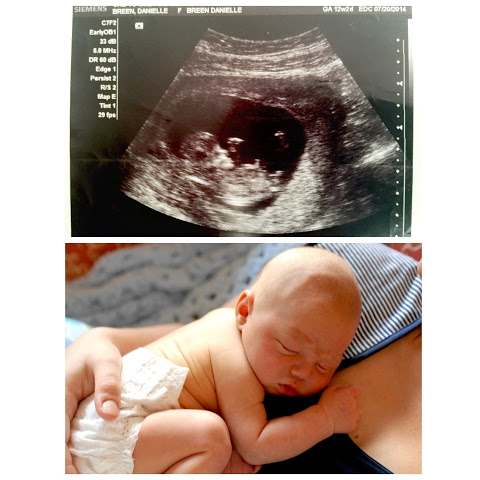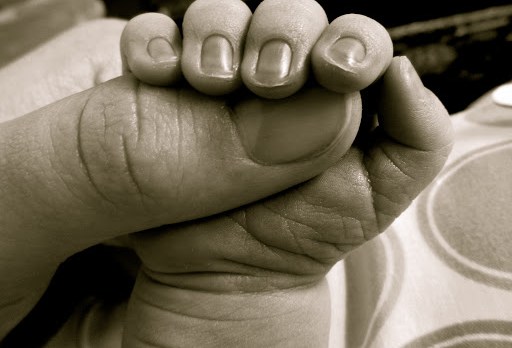“A person’s a person, no matter how small.”
-Dr. Seuss
My generation doesn’t talk much about abortion. The topic is settled in many people’s minds and further discussion only creates an atmosphere of hostility. Many women and men who have experienced an abortion never speak of it for fear of judgment or personal shame. Nonetheless, it is a quiet source of regret and great emotional turmoil for many people. The politicization of abortion positioned as a women’s individual right creates a forced silence, and has produced a generation that does not want to look at the broader truth and as a result appears not to care.
In my juvenile way I always viewed Sex-Ed class in middle school and high school as embarrassing and mortifying. My gym teacher sat there lecturing in a monotone about how to not get pregnant while simultaneously showing us how to put a condom on a banana. When counseling on the intricacies of sex, our teacher would talk about safe relations and the availability of contraception. Not once was having a baby discussed in the context of sex. We grew up and were taught by teachers, parents, and society in general how to not get pregnant. We were not taught that sex inherently leads to babies.
The cultural message from my adolescence through my early adulthood was that people have sex because it feels good and it supposedly would allow a couple to reach more intimate closeness, even though relationships at that age are inherently temporary and increasingly casual. The potential for sex to create a new life was an avoidable and inconvenient reality; extraneous to the point of irrelevance.
Throughout my teens and early college years I considered myself pro-choice, without ever seriously thinking about it. I was told by my peers, my teachers, the media… that abortion helped women, and that if you were against abortion, you were against women. At the same time, I knew personally that if I ever found myself unexpectedly pregnant, I could not have an abortion. I didn’t ask myself why this was the case, it was just something I felt. I also thought that I could not impose this feeling on other people, and take away their right to an abortion. After that I sort of dismissed the issue. I wasn’t interested in hearing facts from either side, because I had made up my mind. Besides, most of the people I knew and identified with shared similar convictions.
Then I became pregnant during my senior year of college. The idea of abortion took on a whole new relevance in my life. I knew in my heart, instinctually, that if I had an abortion it would ruin my life. So I did the only thing I could do, I kept my baby. I took responsibility for my actions. I started asking myself why I couldn’t have an abortion, and how it was that deep down inside I knew that abortion was wrong. Listening to my intuition, and refusing to let evil infect my heart, gave me the most cherished relationship of my life, my son and the light of my world.
I was barely 8 weeks into my pregnancy when I first heard, and saw, my son’s heartbeat on the ultrasound. He was 12 weeks old in gestation when I could first distinguish his little fingers and saw his acrobatic movements on the screen. Just 12 weeks and he was touching his face, sticking his feet in the air, and doing somersaults. When he was 20 weeks I felt him kick and move inside of me. It’s legal to abort a child who is 20 weeks gestational age in over half of the states in the United States.

Photos Courtesy of Danielle Breen
I soon began to realize that cherishing the life of the unborn was not an expression against women; it was an appreciation for the life of
every person, for the lives of women and their children. Once I realized through personal experience that abortion is the termination of the life of another human being, I could accept no part of it. I believe that women should have the freedom to choose in all things, but when a choice controls the life of another living human being, it’s not really a choice is it? I accept as scientific fact that if a fetus has two human parents, it must be human, and if it is growing, it must be alive; I believe the natural human rights that we extend to all human beings cannot be denied to the unborn. The real civil rights question turns on how you rationalize control over human beings that are as yet unborn. Do they have natural human rights or are they property… slaves?
During my college pregnancy I found myself fighting for my rights as a woman – the right to have my baby. When I shared my pregnancy with people I trusted, several asked me “Have you thought about abortion?” Or when I told them I was having and keeping my baby some responded in a snarky tone, “Why?” I even shared the knowledge of my pregnancy with one of my professors and her response was, “Well, that’s good that you had the right to choose this.” It is a sad world we live in where a woman has to justify keeping her own child.
Because speech about abortion is chilled, especially in my generation, we do not look at the scientific truth and empirical evidence that could inform our thought and choice. We never talk about the personal consequence of making an abortive choice. Even though the issue is positioned as a women’s health right, there are no credible published studies that identify situations where an abortion has improved the life or well-being of even a single woman. In the United States we ignore the increasing evidence from respected European studies that show harmful outcomes can occur in post-abortive women, both physically and psychologically.
For instance, a study in Finland used women’s medical records to find that women who had an abortion were three times more likely to commit suicide within one year than women in the general population, and they were more than six times more likely to commit suicide than women who had carried their pregnancies to term. Such reliable studies from reputable sources strongly indicate the psychological risk women face as a result of an abortion choice. Society in the United States simply does not understand abortion independent from political and ideological issues. Abortion opinion in our culture is shaped by pervasive secular political ideology and not by any reasoned or scientific presentation or actual discussion of objective truth.
So many people of my generation, the millennial generation, have bought into the campaign that abortion is a “necessary evil"; much like our slave-owning ancestors, history appears to be repeating itself. I understand the level of thought of a person who says they are pro-choice only at certain gestational age; or when they say they support abortion, but would personally never have an abortion. I understand the thought process of that person because I was that person. Many good, compassionate, well-meaning people hold these opinions; most of the people I know share this opinion. They don’t formulate a reasoned basis to decide at what point a fetus, literally a little one, becomes human? How can we as imperfect human beings give ourselves an arbitrary authority to determine whether or not a little one is alive or human? As a society we have bought a sales pitch that abortion is good with little or no critical thinking about that proposal. We tell ourselves lies to justify abortion, when the obvious and inescapable scientific answer is that life begins at conception. It is not a matter of faith; it’s a fact.
I think if my generation were to think about abortion without the political identity stigma or bias of ideological "educators" and media outlets, if they were to examine the truth with an open mind and an open heart, they would see the only reasoned, studied, empirical, objective truth is that abortion ends a human life. I think if people were to talk about it a little more, if there wasn’t such a taboo on the topic of abortion, people would recognize evil in the lies about abortion. In our present society among my generational peers, it is difficult to point out that the unborn are human beings whose lives must be cherished and preserved.
Being labeled anti-abortion gives people the false sense that you are not only an enemy of women, but an enemy of the complete secular progressive fabric that my generation has come to accept and conform to like a fashion statement, a woven expression of personal identity. Few of us dare to ask, what kind of "feminism" creates a culture where women are taught to reject family structure, taught to deny their fertility, and encouraged to kill their babies? The backlash is desperate because when you pull on one of the threads of this cloth of lies, the whole ideology may unravel.
Despite the resistance I feel from my peers and almost everyone that I know, I have no choice but to speak the obvious truth because the personal human consequence of accepting the lies for the sake of convenience is too horrible for me to contemplate.
Danielle Breen is a 2014 graduate from the College of the Holy Cross, a part-time freelance writer, and a full-time mother. She is author of the blog www.mammarino.com, where she writes about life as a young mother who found herself unexpectedly pregnant her senior year of college.

